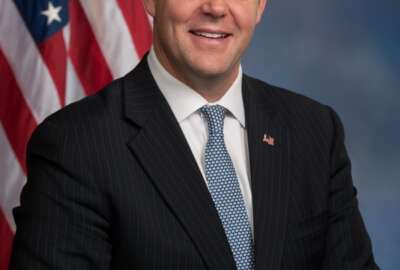The Veterans Affairs Department says it supports new legislation that would put some limitations on how much time its employees can spend doing union work.
The Veterans, Employees and Taxpayers Protection Act, which Rep. Jodey Arrington (R-Texas) introduced earlier this month, prohibits physicians, dentists, podiatrists, chiropractors and optometrists from using official time at all. VA employees involved in delivering direct patient care could not spend more than 25 percent of their work hours on official time. And no VA employee could spend more than 50 percent of his or her time doing union business, the legislation said.
VA’s support comes as Congress debates whether official time is “necessary, reasonable and in the public’s best interest,” particularly given the department’s struggles to schedule and see patients quickly, with 45,000 vacant health care positions.
“The department supports the legislation,” Kimberly Perkins McCleod, acting executive director for labor management relations at VA, told the House Veterans Affairs Economic Opportunity Subcommittee at a March 21 hearing on the VETS Protection Act March. “To the extent the legislation caps or limits it to … no more than 50 percent, the department supports that, and we don’t believe that any time over that would be reasonable, necessary or in the public’s interest.”
The department said it sees both sides. In some cases, VA managers have been frustrated by official time. But in others, the department’s managers see its benefits.
Shirley Parker Brommel has been a VA nurse for nine years. She spends all of her work hours on official time and said managers like knowing that she’s available to step into a meeting or to resolve sudden employee issues.
“We achieve more consistency and efficiency when labor and management are working with the same knowledge base,” Parker Brommel said during the March 21 hearing. “It is [a] faster, smoother process when we have one person working full time on representation rather than four people on 25 percent.”
Parker Brommel said she also serves as a liaison between management and front line employees, who often have the best insight into what’s working and what isn’t at the department.
“When a directive or policy comes forward, we have the opportunity to look at that and see what work needs to be done,” she said. “I take the policy. I look at it. I go to the front line staff and I say, ‘This is the policy that’s coming out. How can we do this? How can we make this work the best?’ They’re the subject matter experts.”
Yet committee members remained divided over the concept of having some VA employees, particularly those hired to directly care for patients, spend all of their work hours on union business.
“Official time is not working,” Rep. John Rutherford (R-Fla.) said. “It’s evidenced by wait lines. It’s evidenced by lack of service to our veterans who have earned that care. … I don’t need any more information.”
Democrats said they were hesitant to move forward with the bill but didn’t strike down its ideas completely.
“If we conclude that official time helps us to deliver quality care and services to veterans, then we have to ask ourselves what is the best way to organize that official time,” subcommittee Ranking Member Beto O’Rourke (D-Texas) said. “If we conclude that in some cases, having 100 percent of an employee’s day dedicated to official time because it improves the delivery of care and services to veterans … then we will, or I will, support that. If we find that it does not, then I will not support 100 percent official time.”
But O’Rourke and other Democrats questioned whether the time for major changes to official time should come later — after VA completed an analysis of whether having one person completely dedicated to union work drew cost savings.
“The argument that we’re making without the data, that we’re instantly more efficient without having them there, is specious at best,” Rep. Tim Walz (D-Minn.), the full committee ranking member, said.
But VA doesn’t have more data, and what it does have may not be accurate.
The Government Accountability Office recently determined that VA’s data is unreliable, since the department lacks a consistent and reliable method to track their employees’ use of official time. At least 340 VA employees spent 100 percent of their working hours on union business in fiscal 2015, but that number could be higher or lower, GAO said.
Though VA said it generally supports the bill, it has some concerns, specifically with the additional reporting requirements that would cause the department to make changes to the time and attendance system it’s already built and beginning to implement at medical centers and offices across the country.
The department is slowly replacing its legacy system and rolling out the VA Time and Attendance System (VATAS) to its facilities. That work began in 2013. It won’t be finished until July 2018, McCleod said.
Copyright
© 2024 Federal News Network. All rights reserved. This website is not intended for users located within the European Economic Area.
